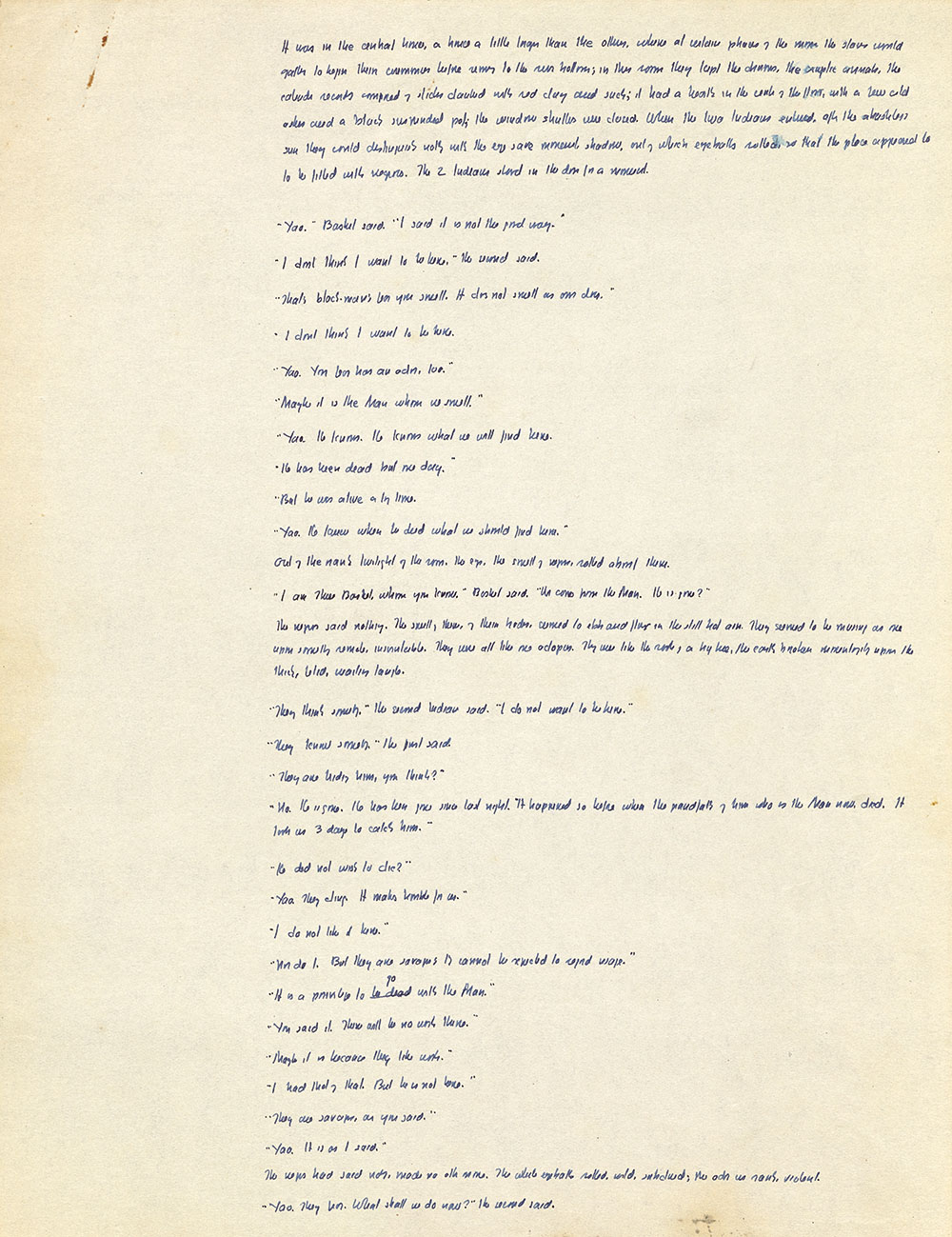
 |
CLOSE WINDOW |
 William Faulkner Foundation Collection, 1918-1959, Accession #6074 to 6074-d, Albert and Shirley Small Special Collections, University of Virginia Library, Charlottesville, Va. [Item Metadata: Autograph manuscript, 12 p. (12 R, 0 V) on 12 l. ] |
|
It was in the central house, a house a little larger than the others, where at certain phases of the moon the slaves would "Yao," Basket said. "I said it is not the good way." "I dont think I want to be here," the second said. "Thats black-man's fear you smell. It does not smell as ours does." "I dont think I want to be here. "Yao. Your fear has an odor, too." "Maybe it is the Man whom we smell." "Yao. He knows. He knows what we will find here. "He has been dead but one day." "But he was alive a long time. "Yao. He knew when he died what we should find here." Out of the rank twilight of the room, the eyes, the smell of negro, rolled about them. "I am Three Basket, whom you know," Basket said. "We come from the Man. He is gone?" The negroes said nothing. The smell of them, of their bodies, seemed to ebb and flux in the still hot air. They seemed to be musing as tho "They think something," the second Indian said. "I do not want to be here." "They know something," the first said. "They are hiding him, you think?" "No. He is gone. He has been gone since last night. It happened so before when the grandfather of him who is the Man now, died. It "He did not wish to die?" "Yao. They cling. It makes trouble for us." "I do not like it here." "Nor do I. But they are savages They cannot be expected to regard usage." "It is a privilege to <be dead> go with the Man." "You said it. There will be no work there." "Maybe it is because they like work." "I had thought of that. But he is not here." "They are savages, as you said." "Yao. It is as I said." The negroes had said nothing, made no other noise. The white eyeballs rolled, subdued; the odor was rank, violent. "Yao. They fear. What shall we do now?" the second said. |